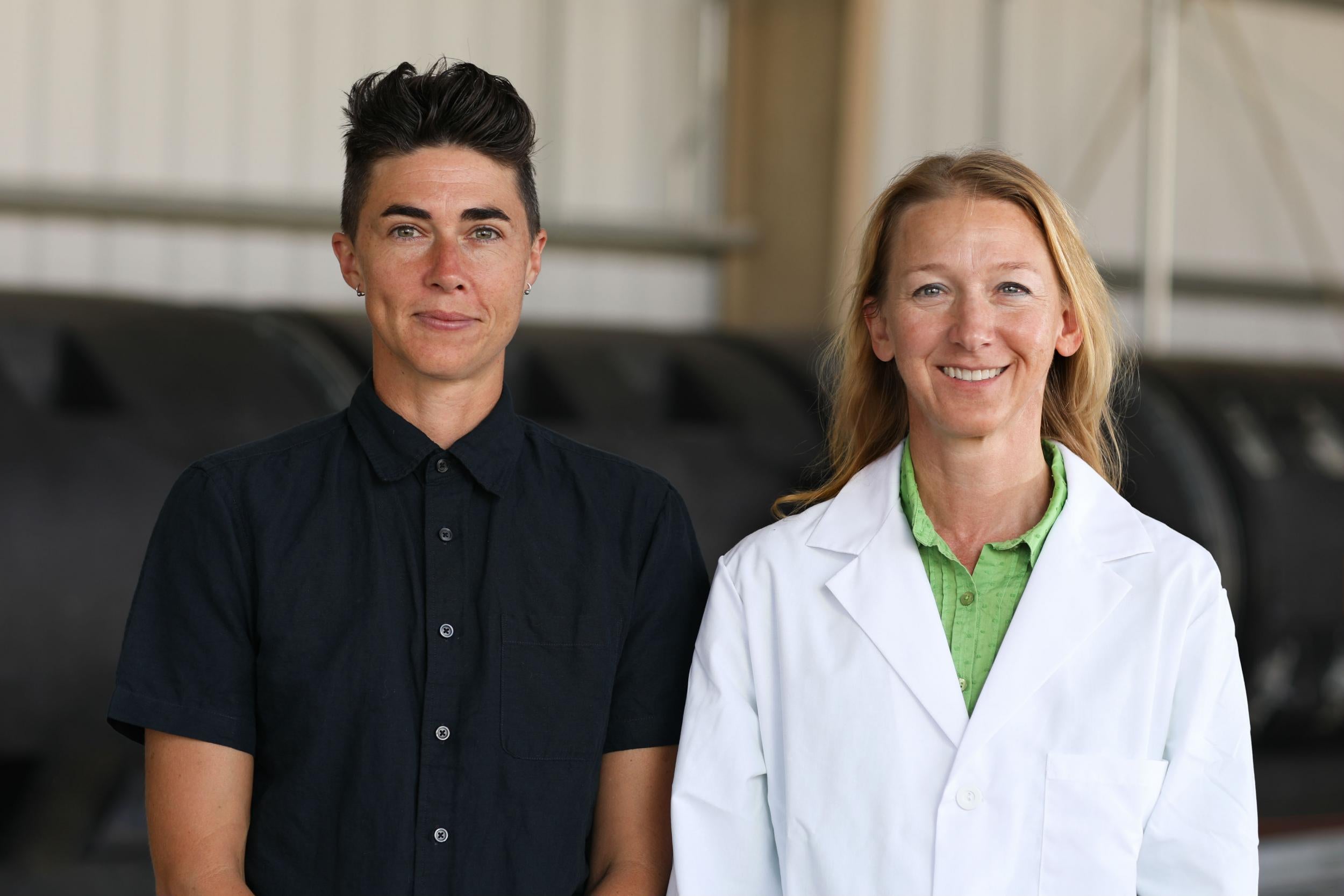Washington set to legalise human composting, the green afterlife that is good for the planet
Many people say they want their remains to nourish a tree
Ashes to ashes, dust to new trees. The state of Washington is poised to make history by legalising a way of dealing with the dead in a way that is good for the planet – and potentially the soul.
When the overwhelming majority of people pass away, they are either cremated or buried, a sometimes costly process that can involve harmful products such as embalming liquid, or use fossil fuel energy.
But if Jamie Pedersen gets his way, the residents of Washington would be the first in the the nation permitted to undergo composting, a process in which human remains are gently broken down into soil that can be used to sustain new life. Want to help grow a tree after you have died? Then human composting, or recomposition, may be for you.
Pedersen, a Democratic state senator who is sponsoring a bill when the legislature reconvenes later this month, sees it as helping in two ways; it would likely be up to $2,000 cheaper than a regular burial, and less harmful to the environment.
“It’s amazing to me that in the year 2019, we still have only two ways of disposing of bodies, and those are ways we’ve used for centuries,” he tells The Independent. “In all other ways, technology is changing everything.”

The measure would also permit Washingtonians to make use of alkaline hydrolysis, a process sometimes referred to as water cremation, in which a body is broken down in water and lye, until just mineral dust is left. More than 15 states already permit this.
The new push to legalise human composting comes as Americans are increasingly thinking about more environmentally friendly ways to dispose of either themselves or their loved ones.
“Because consumer values and lifestyles are reflected in their attitudes and decision-making about products and services in the marketplace – including their approach to death and funerals – interest in natural funeral and burial options will likely increase,” says the National Funeral Directors Association, a worldwide organistion that represents 20,000 members. “According to the 2017 NFDA survey, 53.8 per cent of respondents indicated an interest in exploring green funeral services.”
Jim Olson, a spokesperson, says the human composing being considered in Washington would be “another tool to our toolkit”. The most important part of a funeral director’s job is to provide relatives and loved ones with various options, he says.
While he suspects human composting might face more cultural challenges in some places than others, he believes in Washington it could get traction. He says when families request a service, “the most important thing we ask [when families suggest something] is, is it ethical, is it legal”.

The effort to legalise human composting in Washington has been largely driven by Katrina Spade, a 41-year-old Seattle-based designer and entrepreneur. In 2014, she formed the so-called Urban Death Project, which allowed her to investigate the composting of human remains, while completing a master’s degree in architecture.
She liaised with researchers at Western Carolina and Washington State universities, most notably Lynne Carpenter-Boggs, professor of soil science at Washington State. Carpenter-Boggs worked with students, and six donated bodies, to find the best way to break down human remains.
They tested methods by placing the bodies in a vessel on wood chips, with straw, alfalfa and other composting materials. Air was pumped in to help speed up microbial activity. Within a month, the bodies had been broken down, the Seattle Times reports.
Last November, Recompose, a company founded by Spade, reported that its study had “successfully concluded that recomposition of human bodies into soil is an effective and safe alternative to burial and cremation”. The company says Washington has the country’s highest cremation rate at 76.4 per cent, but says the process requires fossil fuels and releases CO2 into the atmosphere.
Human composting, or recomposition, uses one eighth of the energy of cremation and saves more than metric ton of CO2 per person, it says.
Spade says many cities in the US, such as New York and Seattle, are running out of space to bury people. As a result, she believes society needs to think deeply about a more efficient way of handling the dead.
“It is an understandable tendency to limit the amount of time we spend contemplating our after-death choices, but environmental realities are pressing us to develop alternatives to chemical embalming, carbon-generating cremation and the massive land use requirements of traditional cemeteries,” she says. “Recomposition offers an alternative to embalming and burial or cremation, that is natural, safe, sustainable, and will result in significant savings in carbon emissions and land usage.”
Carpenter-Boggs perfected the technique by studying the way the livestock industry to compost animal remains. “The basic principles that we have learned from livestock mortality composting are very effective for the human research subjects that we used.”

If the measure is passed, it will likely boost the demand for composting the remains of pets. In 2017, a company called Rooted opened in Bellevue near Seattle, offering a pet composting service that created “living memories of beloved pets after they have passed on”.
Co-founder Greg Schoenbachler says the company has perfected a system for disposing of pets through composting, and was now trying to find the best way to connect with customers. “We have served a number of clients already.”
Another company that specialises in handling with the disposal of pets in a thoughtful, environmentally-friendly process, says awareness is growing.
Joslin Roth, the co-founder of Resting Waters, a mortuary for pets that uses alkaline hydrolysis to reduce the remains to ash, says its behaves more like a regular funeral home than one for animals, offering grieving pet owners the opportunity to view their pet’s body, to help plan their disposal and offer support.
She says her customers are “all types”, ranging from environmentalists to people whose pet may have been frightened of fires and does not want them cremated. They often light candles while the owners sit with the remains of their pets.
People, she says, often do not know there is an alternative to cremation organised by a vet. “In California it it much more established,” she says. “It’s very holistic.”
A previous piece of legislation, to make legal the use of alkaline hydrolysis for human remains, but not recomposition, failed in 2017 after opposition from the Catholic church. It reportedly did so on the grounds, dissolved human remains may drain into sewers.
The measure may go against Catholic doctrine that requires the human body to be respected, James LeGrys, theological advisor to the United States Conference of Catholic Bishops, tells NBC News. LeGrys is not aware of the process of recomposition, but points out it could be a problem if body parts are separated.
Pedersen says he has bipartisan backing for the bill and is confident it will pass. He says: “I think there is strong support for it.”
Join our commenting forum
Join thought-provoking conversations, follow other Independent readers and see their replies
Comments
Bookmark popover
Removed from bookmarks